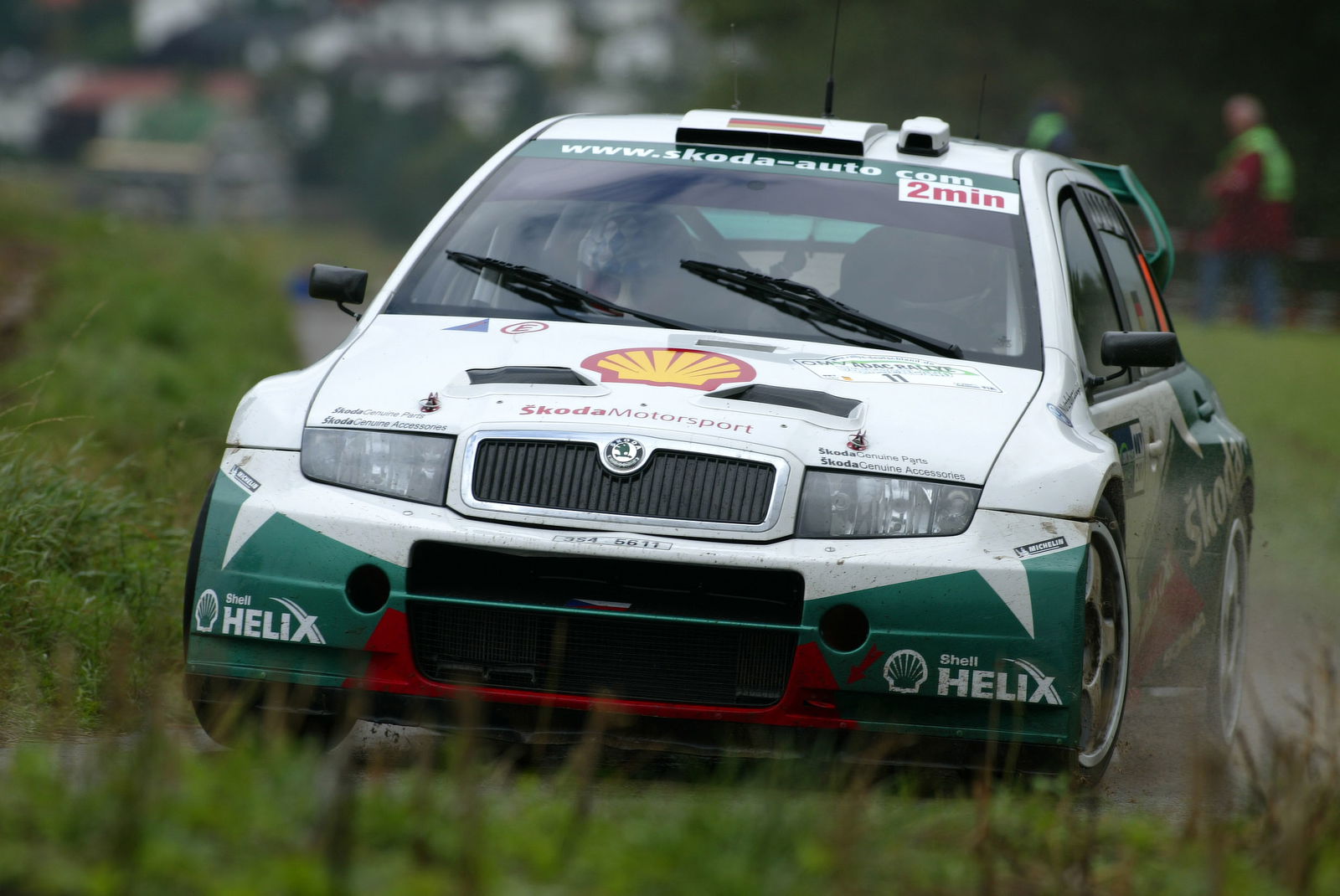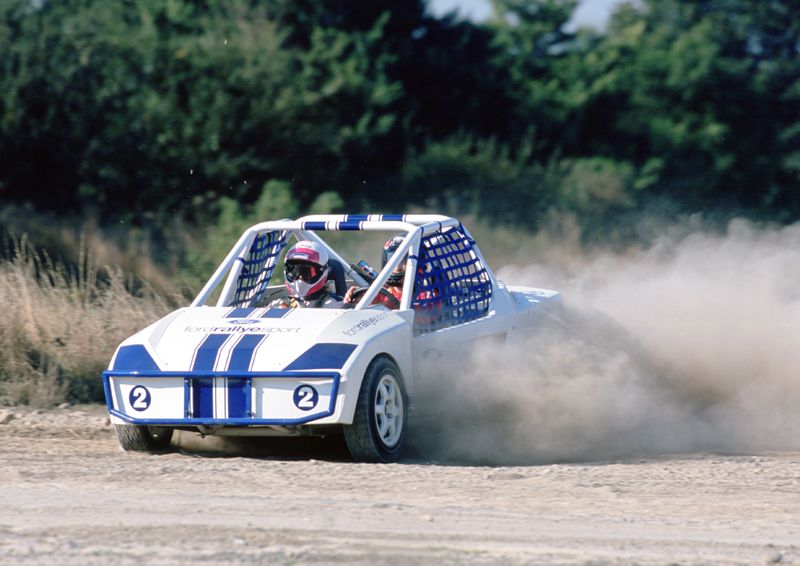Q&A: Nicola Gullino - Peugeot.
Before being appointed as team manager at Peugeot Sport, Nicola Gullino - better known to his friends as 'Nick' - had tried his hand at everything to do with rallying, or nearly. We caught up with him prior to Italy's round of the World Rally Championship in Sardinia...
Q:
How did you first become involved in rallying?
Nicola Gullino:

Before being appointed as team manager at Peugeot Sport, Nicola Gullino - better known to his friends as 'Nick' - had tried his hand at everything to do with rallying, or nearly. We caught up with him prior to Italy's round of the World Rally Championship in Sardinia...
Q:
How did you first become involved in rallying?
Nicola Gullino:
I started off as a photographer at the age of about fifteen or sixteen before turning to co-driving for about ten years until 1993. During the same period I was a student and eventually worked as an architect, and then as a university professor before it was no longer possible to put off having to do national service. For that, I volunteered for the first Gulf War. When I got back from that, I found myself at something of a loss but then I met the Tabaton family who wanted to build up their rally operation, Grifone. I was taken on for a test period and ended up staying with them for around ten years.
Q:
How long did it take you to become a team manager?
NG:
I learnt step by step, at the time as the operation progressed over the years to become the biggest private team involved in the WRC. After joining them in 1995, I was able to get first hand experience of practically all the rallies that counted towards the championship. I was basically a sort of Mr. Fix-it, a job that covered many things, from logistics to commercial work. I also worked very closely with the drivers which meant I was able to work with nearly all those who are currently at the top of the sport today. For example, we obtained third place finishes on two occasions with Harri Rovanpera against the factory cars, in Portugal and Finland. I also ran Marcus Gronholm in 1995 at the time of his debut as a semi-works driver.
Q:
What does your role at Peugeot Sport involve today?
NG:
When Jean-Pierre Nicolas asked me to move to V?lizy last year, he told me that he needed an orchestra conductor! And Peugeot Sport was a big orchestra made up of a large number of top professionals in their field. My role was to get all these virtuosos playing in unison. I was helped by the fact that the team already had a good coordinator in the person of Vincent Laverne. My duties also include looking after the schedules of the drivers, from PR operations to their travel arrangements to test sessions. The fact that I worked closely with them in their early days means I enjoy a special relationship with them today. It often only takes a nod of the head for us to understand each other and this sort of close complicity can be a help at times when their morale perhaps needs a bit of a boost.
Q:
You joined an existing, closely bonded squad. How is your relationship with the team?
NG:
First class. I have never been considered as someone just brought in from the outside. Rallying is a small community and I had already had the opportunity to work with the likes of Michel Nandan and Emilie le Fur when they looked after the Peugeot crews run by Grifone with the 206 WRC and other cars. The trickiest thing was getting to know everyone because it's such a big team. I'm personally learning all the time thanks to the people I work with, wherever they fit in in the hierarchy. My role is to listen to their needs and ideas and that is very rewarding. It's easier to think when you've got a number of brains on the case. The fact that the atmosphere is still very positive despite the set-backs we have been through this season is indicative of the quality of the human side of the team.
Q:
The numerous regulation changes that have been introduced this season have not made life easy for you.
NG:
True, it hasn't been a luxury having two people working on this side - namely Vincent Laverne and myself - to solve some of the problems raised. We work very closely together and dovetail each other well. Vincent knows the regulations inside out and has an amazing ability to concentrate which allows me to cover other things, such as liaising with the drivers, negotiating with FIA bodies, etc. We are quite proud of the contribution we have made together to bring more logical regulations to the sport. We have pushed hard in this sense and I hope our work will bear fruit. The toughest thing is in fact keeping the momentum going with the current calendar of sixteen rallies. It would clearly be easier for us to run three drivers on fewer events.
Q:
What is the most frustrating and most satisfying aspect of life as a rally team manager?
NG:
What we've been through this season has been difficult. We know we have the potential to win and we regularly find ourselves in the lead yet we don't succeed in getting the sort of results we believe we deserve. The most frustrating thing was of course being deprived of our victory in Cyprus after winning on the stages. But when the end result does reflect the effort everyone is putting in, you feel really proud for Peugeot's 160,000 employees, and that's really the most satisfying thing.
Q:
Your work in rallying has already taken you to Sardinia in the past. What is your opinion of this event which is a newcomer to the sport at world level?
NG:
I have actually competed in the Costa Smeralda Rally in the past as a co-driver. I have also worked as team manager there, including last year with Harri Rovanper? when he won with the 206 WRC. I have tried to pass on what I know about the event to the team, but there's really not all that much to say. The 2004 route features a large number of stages that are new, or practically new, and they're located on private property which means they're not easy to access outside of the rally. This year's event includes a little less than 10 per cent of last year's route. But it's a very beautiful part of the world and the stages remind me a bit of the Fafe region in Portugal with a covering of sandy gravel on a harder base. The photographers will doubtlessly enjoy it, as will the drivers who will appreciate the smooth stages.

